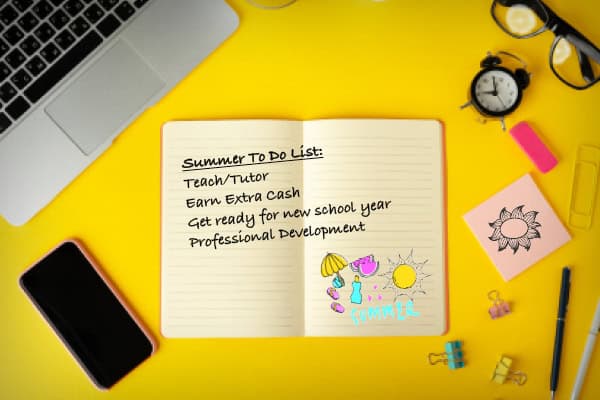“Many teachers continue to work over the summer: Some teach summer school or tutor students, while others participate in professional learning and development courses to further their knowledge and skills. Many teachers use the time to revise their lessons and prepare for the upcoming year. Some take on paid summer jobs in other fields to supplement their teaching salaries,” says Heather Peske, the president of the National Council on Teacher Quality, a Washington-based research and policy group, in an article in Education Week.
Given the lengthy hours and stressful nature of teaching, it’s not surprising that many educators don’t feel able to dive immediately into relaxing summer mode at the end of the school year. Responses to a recent (unscientific) social media poll conducted by Education Week, which asked teachers to share personal passions they pursue in the summer, bore this out.
Some respondents did share personal summertime passions they planned to pursue, such as swimming, gardening, exploring nature and writing poetry. But about an equal number of responses carried undertones of exhaustion and burnout.
Responses also drove home the fact that, for many teachers, summer represents an opportunity to earn income rather than relax.
Statistics on the percentage of teachers who take on jobs in the summer months vary. But a recent We Are Teachers survey indicated that nearly 50 percent of teachers bring in a second stream of income during their summer break.
Some data suggest that early-career teachers are far more likely to take on summer work than their more seasoned professional peers. A 2019 report by the Pew Research Center found that 32 percent of first-year teachers have a second job in the summer, compared to just 13 percent of veteran teachers who’d been at the job for 30-plus years.
Most teachers spend at least some time on their teaching job during the summer. The RAND Corp. surveyed teachers nationwide about their participation in professional learning activities during the summer of 2019; virtually all reported having done at least one such activity during the break. Beyond PD, teachers engage in other informal activities that support their work: purchasing supplies for classrooms, decorating classrooms, and preparing welcome packets for new students, to name a few.
Narratives that discount teachers’ summer contributions must be debunked, Peske says.
Education Week





